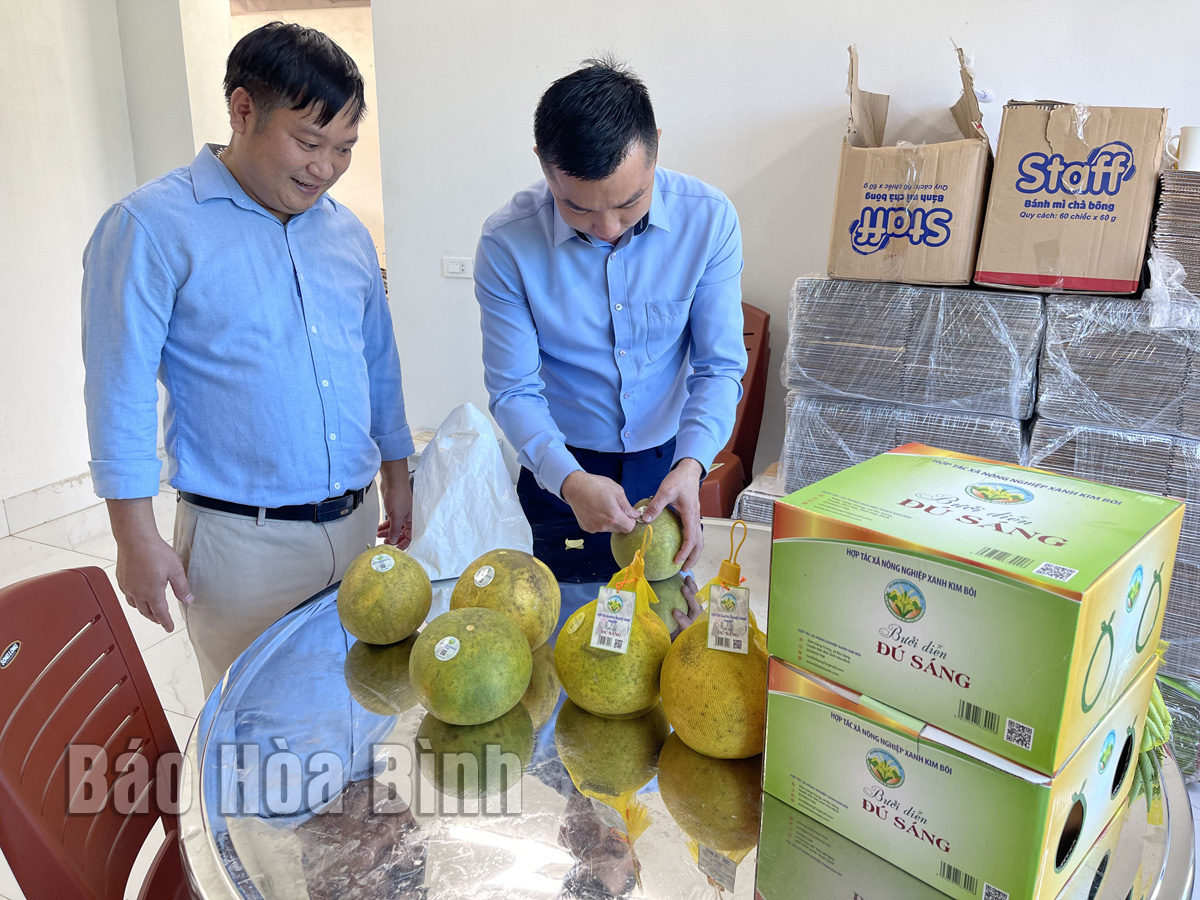
(HBO) – Members of the Kim Boi green agriculture cooperative in Du Sang commune, Kim Boi district, are working hard to improve the quality of their Dien pomelo product by optimising the locality’s advantages and strengthening technology in farming, with an aim to get it recognised as a three-star OCOP (One Commune-One Product) product in 2022.

Dien pomelos produced in Du Sang commune are
carefully chosen, packaged and labeled with traceability stamps before being
provided to the market.
Dien pomelo have been cultivated by the cooperative since 2003. In order to
successfully develop this product, members of the commune joined many training
courses on organic farming. They have prioritised the use of natural pesticides
to protect their pomelo farms.
Thanks to the natural and organic farming techniques, Dien pomelo of Du Sang
have always met foot safety standards, with unique sweet taste.
Bui Thanh Son, Director of the Kim Boi green agriculture cooperative, said that
thanks to organic farming techniques and local fertile soil, Du Sang Dien
pomelos are highly evaluated by consumers. Before being supplied to the market,
the product is carefully classified and labeled with traceability stamps. So
far, the market for the product has been stable.
Son said that to date, the cooperative has over 10 hectares of pomelo farms by
10 member households who earn 40-100 million VND and even 200 million VND each
year.
Currently, the locality is working to further develop the product to make it a
three-star OCOP product meeting all requirements in terms of food safety and
quality, contributing to realising targets of the OCOP programme of Kim Boi in
2022.
According to data from the Hoa Binh Provincial Party Committee, the industrial production index for the first six months of 2025 is estimated to have increased by 20% compared to the same period last year. This marks the highest year-on-year growth rate for this period since 2020.
In the first six months of 2025, Hoa Binh province’s export turnover was estimated at 1.145 billion USD, marking an 18.11% increase compared to the same period in 2024. Import turnover was estimated at $ 804 million, a 17.15% increase, which helped the province maintain a positive trade balance.
The lives of the ethnic minority farmers in Tan Lac district have gradually improved thanks to the new directions in agricultural production. This is a testament to the collective strength fostered through the professional associations and groups implemented by various levels of the district’s Farmers’ Union.
With the motto the "product quality comes first,” after nearly one year of establishment and operation, Muong village’s Clean Food Agricultural and Commercial Cooperative, located in Cau Hamlet, Hung Son Commune (Kim Boi district), has launched reputable, high-quality agricultural products to the market that are well-received by consumers. The products such as Muong village’s pork sausage, salt-cured chicken, and salt-cured pork hocks have gradually carved out a place in the market and they are on the path to obtaining the OCOP certification.
In the past, the phrase "bumper harvest, rock-bottom prices" was a familiar refrain for Vietnamese farmers engaged in fragmented, small-scale agriculture. But today, a new spirit is emerging across rural areas of Hoa Binh province - one of collaboration, organisation, and collective economic models that provide a stable foundation for production.
Maintaining growing area codes and packing facility codes in accordance with regulations is a mandatory requirement for agricultural products to be eligible for export. Recently, the Department of Agriculture and Environment of Hoa Binh province has intensified technical supervision of designated farming areas and packing facilities to safeguard the "green passport" that enables its products to access international markets.



